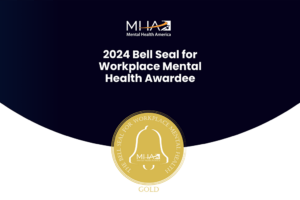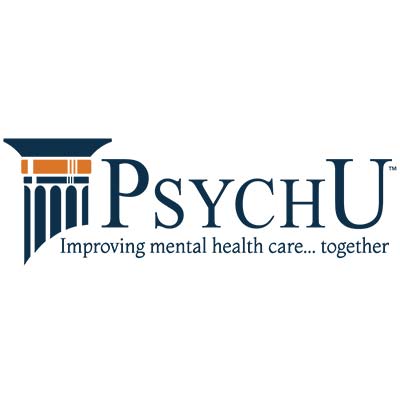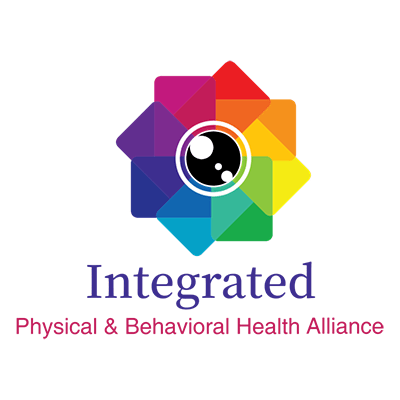Preface: Doctor, Heal Thyself
By Dr. Cara English, DBH, CEO of Cummings Graduate Institute for Behavioral Health Studies
October 16, 2020
 As a Doctor of Behavioral Health, one of the lesser known roles that we play is advocate and care coordinator for our own health and the health of our close network of family, friends, and colleagues. As DBH graduates know all too well, we just can’t help ourselves. Our education and training is put to good use in interactions we have with our own physicians and specialists (poor folks), and we teach our own patients and loved ones the questions they can ask to better advocate for the best care possible.
As a Doctor of Behavioral Health, one of the lesser known roles that we play is advocate and care coordinator for our own health and the health of our close network of family, friends, and colleagues. As DBH graduates know all too well, we just can’t help ourselves. Our education and training is put to good use in interactions we have with our own physicians and specialists (poor folks), and we teach our own patients and loved ones the questions they can ask to better advocate for the best care possible.
But even the best of us have experiences that surprise us when we are coping with a serious diagnosis. While we might have coached family, friends, and patients through their initial or ongoing interactions with medical teams, highlighted the cognitive, emotional, and social components of the experience, and helped them to develop solid plans for these visits, we can’t be a professional – fully – as the patient, nor should we expect ourselves to be capable of doing so.
It’s true that we see a need for integrated care in literally EVERY healthcare interaction. Again, we just can’t help ourselves – it’s what makes us tick, it’s what inspires us to get out there and change the way the world experiences healthcare. It’s our new DNA; our new identity.
But when you’re a patient, DBH’s, give yourself permission to “just be a patient,” and remember to offer yourself the love and support you offer your patients, friends, and family members who are coping with a new, serious diagnosis, or experiencing tough treatments that present uncertainty and fears – both short and long term.
What follows is a shared experience from an experienced DBH who recently found herself in just this situation. Dr. Bobbi Vogelsang has graciously given us the gift of telling us what it was like to be a patient who happens to be a DBH in this situation. And no, she couldn’t help herself; she identified the opportunity for integration! Of course she did!
When a DBH Becomes a Cancer Patient
By: Dr. Bobbi Vogelsang, DBH, DBH Program Faculty, Cummings Graduate Institute for Behavioral Health Studies
September 14, 2020
It’s amazing how not fine you can be while thinking you’re fine.
 Sometimes the not fine parts haven’t reached your consciousness yet, so you look at the other parts and think “I’m okay.” Especially if you’re a woman. Especially if you’re strong (whatever that means). So, after being diagnosed with a very early but very aggressive breast cancer in January of 2020, fine is what I thought I was. I was handling. I was accepting. “I got this,” as they say.
Sometimes the not fine parts haven’t reached your consciousness yet, so you look at the other parts and think “I’m okay.” Especially if you’re a woman. Especially if you’re strong (whatever that means). So, after being diagnosed with a very early but very aggressive breast cancer in January of 2020, fine is what I thought I was. I was handling. I was accepting. “I got this,” as they say.
Then I went for my first chemotherapy infusion.
I started crying in the car. “You’re being silly,” I told myself. “You’re fine.” “This will be fine.” “It’s fine.”
It was so freaking not fine.
I held it together in the waiting room, then started crying again in the oncologist’s office. I couldn’t make it stop. I was utterly freaked out and terrified about starting chemotherapy, what it would be like, how impacted I would be, all the horror stories. I couldn’t pull it together.
My oncologist is a sweetheart. He did his best to talk me through it, what I could expect, and how much he could help manage side effects for me. He was as reassuring as he could be, and I adore him to this day. But I left his office and headed to the infusion room still tearful, and feeling like a hot mess. Like an idiot. The infusion nurse was kind, but really didn’t know what to say to Miss Weepy here. She brought me snacks. You’ll always have me at snacks, but it still took me a while to calm myself down.
And so, here’s where the DBH conversation starts.
Had someone like me been there to meet with me, my oncologist could have moved on to other billable pursuits. My infusion nurse wouldn’t have felt helpless in the face of my teary face. Either of them could have warm-handed me off to a DBH, who would have helped me understand (more quickly than I came to on my own) that this was normal. That reality hits when it hits, and not being okay for a while is a necessary part of becoming truly okay. That the embedded gifts that come with a cancer diagnosis are often wrapped in fear, and control issues, and anger, and tears. There is a complex and nuanced dance between the mind, body, and spirit. A DBH is the best-equipped person to help you navigate the steps of that dance. I am wonderfully okay today. But I really could have used a DBH that first chemo day.
CGI thanks Dr. Vogelsang for sharing her patient experience with us, and we wish her continued recovery. She recently got to ring the bell for her final chemo infusion and is scheduled to complete radiation in January 2021! May her patient experience continue to inform her excellence as a clinical DBH.
Explore additional articles
Ask a DBH: Coping with Triggers
COVID-19 Kills in More Ways than One: The Novel Coronavirus and Suicide





























